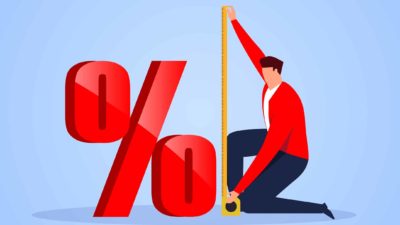As the old saying goes, the stock market climbs a wall of worry.
Overnight, the S&P 500 Index (SP: .INX) extended last week's rally, bringing up its biggest four-day gain since June. The Apple (NASDAQ: AAPL) share price gained almost 4% on positive pre-order data for the new iPhone 14. Not bad for a company already valued at US$2.63 trillion.
Here in Australia, the S&P/ASX 200 Index (ASX: XJO) has also had a nice little run, re-taking the 7,000 level in early Tuesday trading, also on track for its fourth day of gains in a row.
Mining stocks like Mineral Resources Limited (ASX: MIN) and Pilbara Minerals Ltd (ASX: PLS) have been notable gainers as lithium stocks show no signs of losing their popularity, while busted tech stocks Megaport Ltd (ASX: MP1) and Life360 Inc (ASX: 360) have caught a bid too.
Yet, investor wariness remains, according to a new survey from Deutsche Bank.
As reported on MarketWatch, when asked what the S&P 500's next move would be, 74% of respondents said 3,300 – a roughly 18% drop from Friday's close of 4,067.
In addition, fewer than 10% of those surveyed believe the stock market has bottomed, with 33% saying the market will hit its lows for this cycle before the end of 2022.
What does all this tell us?
- Four up days for the market neither signifies the start of a new bull market, nor is it in any way meaningful over the only investing term that matters – at least five years, and ideally decades.
- Investors extrapolate the recent past into the future, both on the downside, and the upside.
We've recently been through an almighty bubble in a number of asset classes, including buy now, pay later stocks, unprofitable tech stocks, NFTs and crypto. In hindsight, it's now obvious. At the time, it's easy to assume the party never ends.
Now, having lived through a brutal stock market correction, caused by an inflation shock and rapidly rising interest rates, we assume there's more pain ahead.
Today, traders are on tenterhooks awaiting the latest US inflation print, released at 10:30pm AEST tonight.
Expectations are for US inflation to have come down from the 8.5% print in July, with economists predicting the August reading to be 8%.
At this stage, it's a guessing game, both as to what the inflation number might be and how the stock market might react.
Scenario #1: Lower inflation than expected, and the market rips higher because the Federal Reserve won't have to raise interest rates as rapidly as it has in the recent past.
Scenario #2: Higher inflation than expected, and US markets fall out of bed, with the ASX 200 to follow suit tomorrow morning.
Scenario #3: After an initial rise or fall based on the August inflation numbers, the market settles back down and focuses on the likely medium-term economic outcome, that being a mild US recession.
What should investors do now?
Keep buying stocks. Keep regularly putting money to work, ideally each month, like clockwork. Invest more money into your favourite holdings, and/or into a broad-based ETF, like my favourite, the Vanguard MSCI Index International Shares ETF (ASX: VGS).
Aussie fund manager reports are trickling out for August, with most saying the recent reporting season was generally better than many had anticipated.
The team at 1851 Emerging Companies Fund said last month it conducted over 200 meetings with listed companies, where many cited no evidence of a slowdown within their respective businesses.
The Eley Griffiths Group Emerging Companies Fund said management outlook statements suggested that the consumer is still spending with no sign of slowdown yet.
Amid all the angst caused by rising interest rates and the ASX 200 index having fallen 8% from its recent peak, it's worth remembering that at 3.5%, the Australian unemployment rate is at its lowest in almost 50 years. It's hardly the stuff of recession.
That said, labour shortages have the effect of pushing up wages, which in turn further fuels inflation, which means the RBA will have to keep hiking interest rates. And if we've learnt anything in the past 12 months, it's that the market, and particularly highly-rated growth stocks, hates even higher interest rates.
Throw all the above into a blender and you get uncertainty, in the short term. It's why investor wariness remains.
In the words of investing legend Warren Buffett, "you pay a very high price in the stock market for a cheery consensus. Uncertainty actually is the friend of the buyer of long-term values."
Befriend the stock market and its volatility. Keep buying. Keep holding, for the long-term, the only term that matters for investors.









